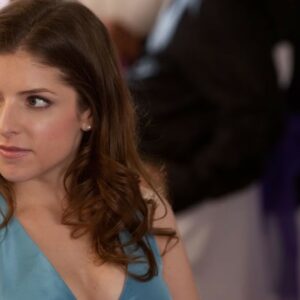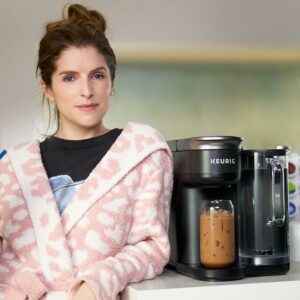When one speaks of Queen Latifah, images of a woman with unyielding confidence and natural charisma spring to mind—a performer who has seamlessly crossed boundaries in the world of entertainment. From her early days as a trailblazing rapper to her commanding presence on television and film, Queen Latifah has proven time and time again that she is a force to be reckoned with. However, it’s within the genre of comedy-drama where her acting talent truly reaches its apex. This unique blend of humor and heartfelt emotion offers a perfect canvas for Latifah’s skills, allowing her to bring to life characters that are both deeply relatable and powerfully dynamic.
The Versatility in Comedy-Drama: Crafting Relatable and Dynamic Characters
Latifah’s mastery of the comedy-drama genre lies in her ability to infuse humor into the everyday struggles of life, turning ordinary moments into profound storytelling experiences. She doesn’t just play characters; she embodies them, creating individuals who feel as if they’ve stepped right out of our lives and onto the screen. In films like Last Holiday and The Secret Life of Bees, Queen Latifah displays a deft hand at balancing lightheartedness with gravitas, making her characters not only engaging but also enduring.
In Last Holiday (2006), Latifah portrays Georgia Byrd, a humble department store employee who, upon learning she has only a few weeks to live, decides to spend her final days living life to the fullest. Latifah’s comedic timing shines as she navigates through the absurdity of lavish European vacations and high society, but it’s her ability to inject Georgia’s existential fear and newfound courage into the narrative that elevates the film from a simple comedy to a heartfelt exploration of life and mortality. This role exemplifies Latifah’s versatility—she dances effortlessly between humor and drama, keeping the audience both entertained and emotionally invested.
Her role in The Secret Life of Bees (2008) offers a different shade of her versatility. Playing August Boatwright, a nurturing and wise beekeeper, Latifah brings a gentle strength to the screen. Here, the comedy is subtler, more interwoven with the drama of a story set in the racially tense South of the 1960s. Latifah’s portrayal of August is one of grace under pressure—a matriarch who holds her family and community together with equal parts wit and wisdom. It’s a role that required emotional depth, and Latifah delivers, showing once again how adept she is at moving seamlessly between the humorous and the serious.
Emotional Range: From Lighthearted Moments to Deep Introspection
Comedy-drama as a genre demands a wide emotional range from its actors, and Queen Latifah rises to the occasion, time and again, with performances that are as authentic as they are engaging. Her ability to switch gears between laughter and introspection gives her characters a fullness that resonates long after the credits roll. Whether portraying a carefree, jovial character or one grappling with heavier emotions, Latifah’s performances are infused with a humanity that feels genuine.
In Beauty Shop (2005), Latifah stars as Gina Norris, a strong-willed hairdresser who opens her own beauty salon in Atlanta. The film is filled with comedic moments, often driven by the colorful personalities in Gina’s shop, but beneath the surface, Latifah’s portrayal of Gina is much more than just laughs. She’s a single mother determined to provide for her daughter while carving out a space for herself in a competitive industry. Latifah’s emotional range is on full display here as she shifts from comedic banter with her employees to the more serious challenges of entrepreneurship and motherhood. It’s a film that allows her to showcase her ability to portray complex emotions, all while keeping the audience laughing.
Perhaps one of Latifah’s most acclaimed performances in this genre is her role in Chicago (2002), where she plays the iconic Mama Morton, the sassy and corrupt warden of a women’s prison. While the film is predominantly a musical, Latifah’s role within the comedy-drama framework is undeniable. Mama Morton is larger-than-life—funny, brash, and unashamedly corrupt—but Latifah injects her with a depth that makes her more than just a caricature. There’s a shrewdness to Mama Morton, a pragmatism that Latifah conveys through both her performance and her commanding screen presence. Her portrayal of this character won her an Academy Award nomination, a testament to how well she blends humor and emotional gravitas in a single performance.
Balancing Humor and Heart: A Delicate Dance
One of Queen Latifah’s greatest strengths as an actor is her ability to balance humor and heart in a way that feels organic and unforced. In the comedy-drama genre, this delicate dance between making audiences laugh and making them feel something deeper is crucial, and Latifah performs it with grace and precision.
Take, for example, her role in The Last Holiday. Georgia Byrd’s journey from an unassuming, introverted woman to a bold, fearless adventurer is peppered with humorous moments—awkward interactions with the elite, misunderstandings in foreign cultures—but Latifah ensures that Georgia’s heart is never lost in the comedy. Each laugh is layered with an undercurrent of emotion, and every emotional moment is punctuated with just the right amount of levity. This balance is what makes Latifah’s performances so memorable; she knows how to hit the emotional beats without overwhelming the audience, and she understands when to inject humor to keep the story buoyant.
In Beauty Shop, this balance is once again on display. Gina Norris is a character who could easily fall into the trap of being either too serious or too comedic, but Latifah’s portrayal finds the perfect middle ground. She imbues Gina with a sense of humor that is both sharp and warm, but also with a vulnerability that makes her struggles relatable. This ability to balance humor and heart is a hallmark of Latifah’s work in the comedy-drama genre, and it’s one of the reasons why she’s so beloved by audiences.
Empathy and Relatability: Representing Real People
Latifah’s characters in comedy-drama films often represent everyday people facing real-life challenges, and it is her natural empathy and relatability that make these characters so compelling. Whether she’s playing a woman trying to start her own business, a nurturing figure in a tumultuous environment, or someone coming to terms with her own mortality, Latifah’s characters feel like people we know—people we could be.
In The Secret Life of Bees, August Boatwright is a character who exudes empathy. Latifah portrays her as a calming presence in the midst of chaos, a woman who has seen hardship but remains hopeful and strong. It’s a role that requires a deep sense of understanding and compassion, and Latifah delivers with a performance that feels both authentic and comforting. She doesn’t just play August as a wise matriarch; she plays her as a real person who carries the weight of her past while still nurturing those around her.
Latifah’s relatability is also evident in her portrayal of Gina Norris in Beauty Shop. Gina is a woman with dreams and aspirations, but also with very real fears and doubts. Latifah captures this duality beautifully, making Gina a character that audiences can root for because she feels so genuine. Whether she’s dealing with the pressures of running a business or navigating the complexities of single motherhood, Gina’s struggles are grounded in reality, and Latifah’s performance ensures that the audience feels every bit of that reality.
Strong Storytelling Presence: Commanding the Screen
In the world of comedy-drama, where the balance of light and dark can often be a tightrope walk, Queen Latifah’s presence on screen commands attention and guides the story with ease. Her performances are marked by a charismatic style that ensures both the comedic and dramatic elements of the narrative are effectively communicated, and this strong storytelling presence is a key component of her success in the genre.
In Chicago, Latifah’s Mama Morton is a character who doesn’t need to say much to make an impact. Her mere presence on screen is enough to command attention, and when she does speak, every word carries weight. Latifah’s performance as Mama Morton is a masterclass in how to use presence to drive a story forward. She doesn’t need to dominate the screen with flashy theatrics; instead, she uses her natural charisma and strong sense of character to guide the narrative, ensuring that the comedic and dramatic elements of the film are perfectly balanced.
In Last Holiday, Latifah’s storytelling presence is equally strong. Georgia Byrd’s journey is one of self-discovery and courage, and Latifah’s performance anchors the film with a sense of authenticity that makes the story feel both personal and universal. She guides the audience through Georgia’s ups and downs with a steady hand, ensuring that the film’s comedic moments never overshadow its emotional core.
Conclusion: A Genre That Elevates Queen Latifah’s Prowess
Queen Latifah’s acting prowess is most effectively showcased in the comedy-drama genre, where her unique ability to balance humor and heartfelt emotion elevates the stories she tells. Her versatility allows her to create characters that are dynamic and relatable, while her emotional range ensures that these characters resonate on a deep level. Whether making audiences laugh, cry, or reflect, Latifah continues to guide viewers through the complex layers of life with grace and authenticity.
In a world where genres often dictate an actor’s success, Queen Latifah has found her sweet spot in comedy-drama. It is here that she can fully express her talents, bringing to life characters who are as multifaceted as the woman who portrays them. And as she continues to take on new roles and challenge herself in different ways, one thing remains certain: Queen Latifah will always shine brightest when she’s balancing humor and heart, showing us all that life, in its many complexities, is a story worth telling.





